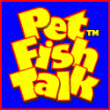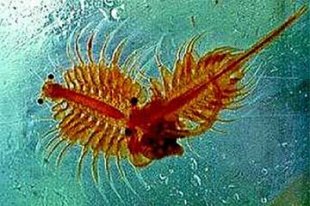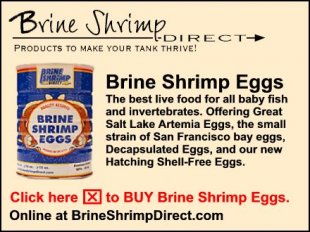

| > |
|
Some types of fish, such as baby Betta Fish, are too small to eat baby brine shrimp and must eat smaller food first. A few types of baby fish, such as Plecostomus Catfish, will not eat baby brine shrimp.
|
 |
|
Different Types of Brine Shrimp live in many places around the world. They grow to a maximum of about 3/8", which is about 1 cm., in length. These adult Brine Shrimp are often harvested and sold as food for small fish.
The eggs of the Brine Shrimp are also collected and carefully processed. Hobbyist and professional fish breeders can purchase eggs, hatch them, and feed the newly hatched baby brine shrimp to their baby fish. Click here now for a detailed explanation about how to hatch these eggs. Both adult and newly hatched Brine Shrimp can be fed special food additives to enrich their nutritional value, before they are fed to baby fish.  Click here for more information about additives for enriching brine shrimp. Click here for more information about additives for enriching brine shrimp.
Frozen Baby Brine Shrimp are very convenient and are also available. Another Interesting product is called Decapsulated Baby Brine Shrimp, which have had their outer covering removed and are then dehydrated. Just add water to create a wonderful food for many types of baby fish. Click here for more about this product. |
|
|
|
Source: aquariumfish.net









